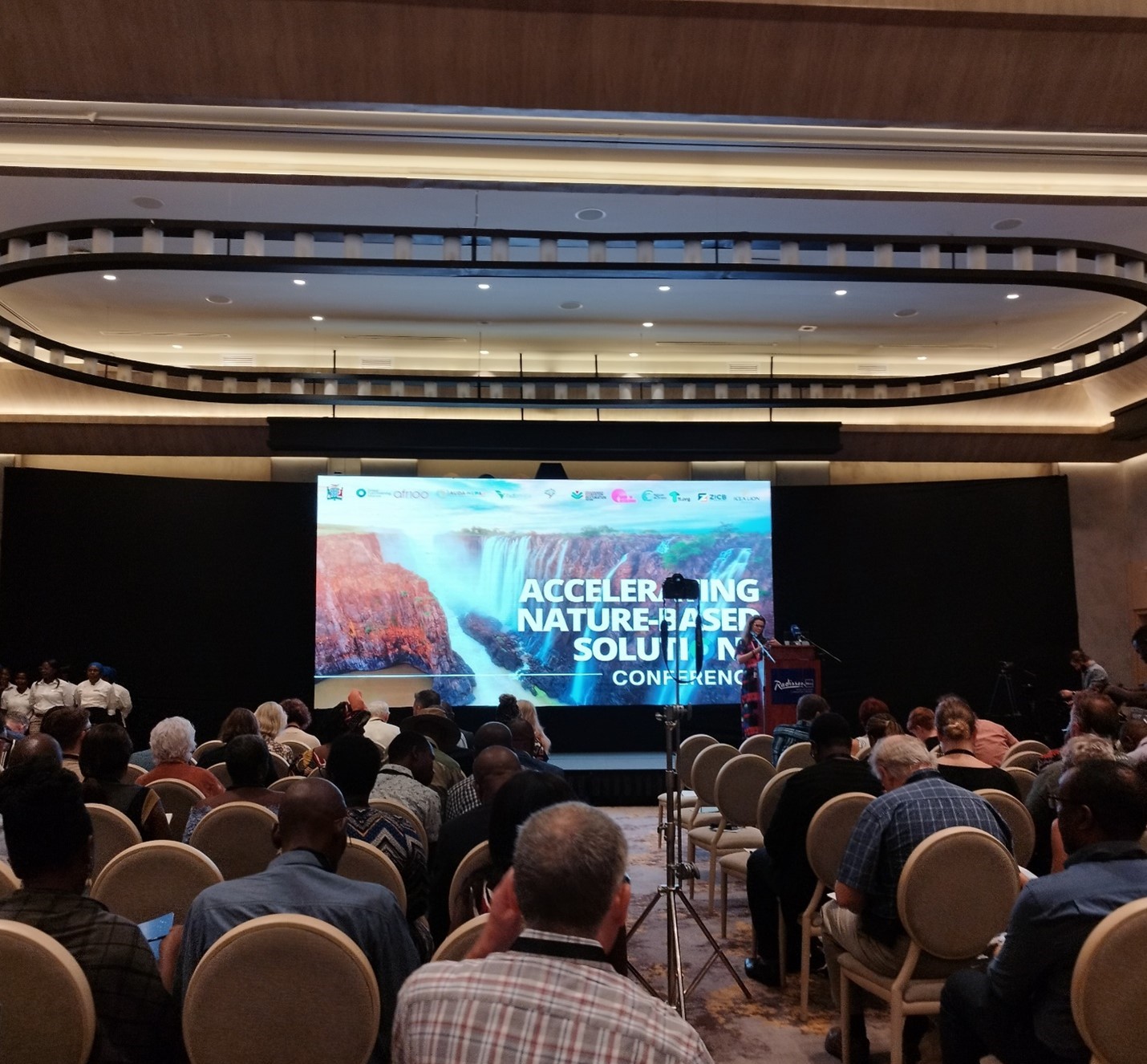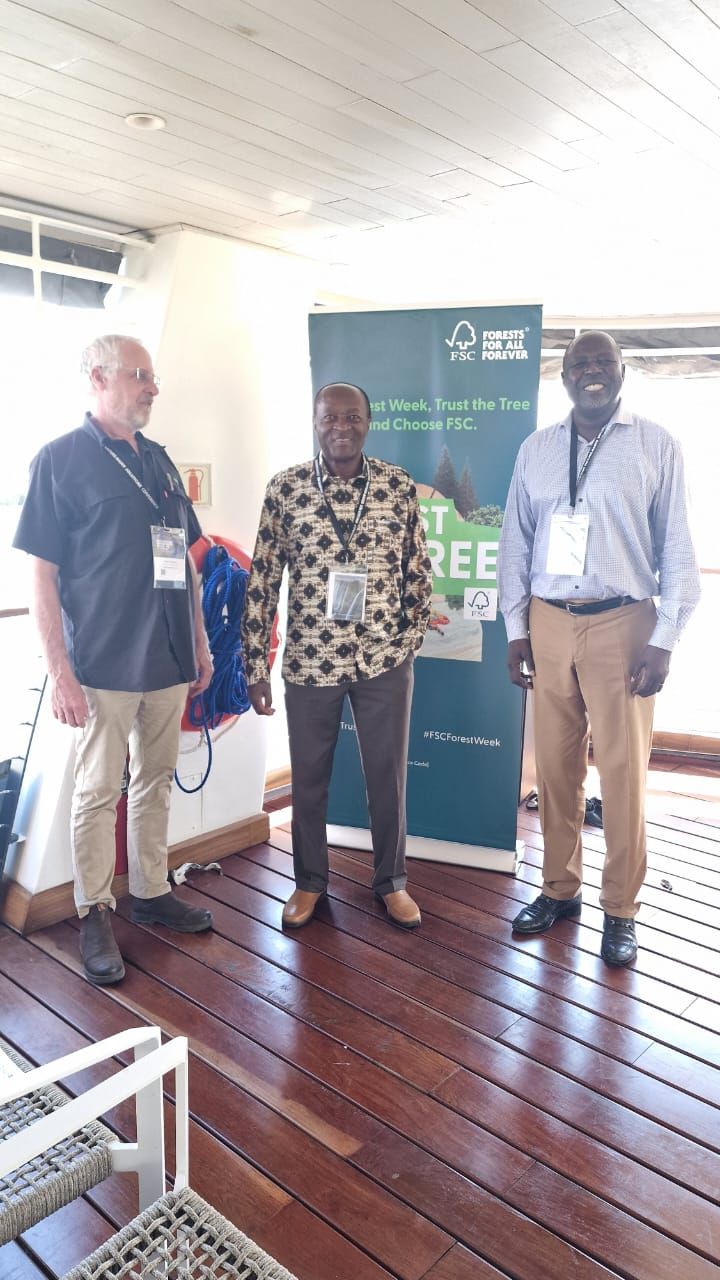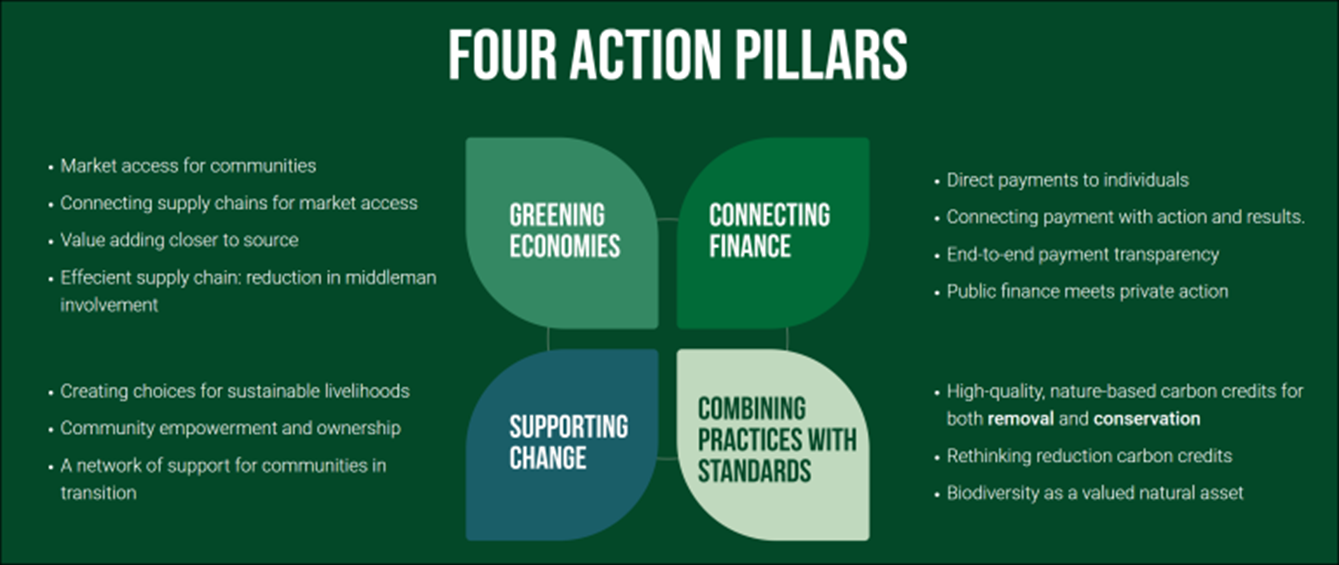
Accelerating Natured Based Solutions (NbS) Conference #greenuptocooldown
A team from FSC Africa attended the conference on Accelerating Nature-based Solutions convened in Livingstone, Zambia in March.
The conference was organised by the Global Evergreening alliance (GEA) in association with Conservation International and other sponsors. The 5-day event was attended by around 500 persons from a significant number of countries and interest groups. Several East and Southern African governments were represented by ministers and senior ministerial officials.
The themes of the conference were:
- Scaling Nature-based Solutions - efficiently engaging millions of farmers and pastoralists, mitigating long-term risks, optimising monitoring and evaluation, and fostering collaborative multi-sectoral design processes across diverse landscapes.
- Policy and Regulatory Instruments - centred on legislation, policy, and carbon, aiming to create supportive environments for nature-based solutions and land restoration.
- Sustainable Finance and Risk – explored sustainable finance, risk mitigation, insurance, and various financial instruments and modalities in the pursuit of effective strategies.
- Building Momentum - aimed at building momentum for bold action towards impactful land restoration, addressing capacity gaps, leveraging land restoration for peacebuilding, the wetting and cooling of earth, and exploring innovative approaches to enhancing food systems resilience.

The conference attracted some big names in the conservation world and was the usual mix of papers and side events. FSC offered a side event to examine the FSC system of standards and certification, together with new products including the ES and CFF procedures, from the perspectives of typical partner organisations and stakeholders. Mamadou Diakite represented the AU-NEPAD AFR100 programme, Mara Naidoo represented the Rainforest Alliance and Harrison Nnoko represented AJESH, a grass-roots community self-help entrepreneurship.
The main FSC event, a session entitled “Nature-based Solutions in Suitable Forest Management Through Certification Tools, attracted attention. Prof. G. Kowero, past Chair of the Africa Forest Forum and member of the FSC Africa Advisory Group gave a keynote address on the advantages of the FSC system for national and continental scale initiatives, followed by the Coordinator Southern Africa presenting an example of unusual but sustainable forest management in Namibia which is an ecological restoration process restoring areas affected by ‘bush encroachment’ (a kind of degradation) through a sustainable harvest process and processing of the wood into charcoal and biomass pellets/chips. This was followed by an independent research paper, soon to be published in Nature, which showed clear evidence that certified tropical forest concessions supported much higher populations of wildlife when compared to non-certified concessions, particularly for larger and more endangered mammal species. In conclusions and based on the presentations and the discussion that followed, it was recommended that the world cannot afford to manage the forest sector without standards, hence the importance of FSC as a global solution. In addition, FSC’s ecosystem procedure meant to verify the impacts of certification was portrayed as a meaningful addition the FSC FM and CoC certification standards and processes.

The conference however certainly provided opportunities for FSC to open some very important doors and most importantly, to align or rather, realign with the dominant forces of this sector. It also provided an opportunity to explain FSC to the many participants who were not aware of FSC’s presence and mission.
A number of speakers referred to the fact that investment interest in biodiversity conservation outperforms the interest in the carbon market by a number of measures, despite the public perception of the voluntary carbon market. It was indicated that if 5% of current carbon investments were geared towards NbS, this could provide 30% of the climate solutions currently required.
One of the overall messages that came through in this conference is that scale is important. Investors/sponsors/donors need to see cost-benefit in terms of the transaction costs associated with these processes and there is not much appetite for small scale projects.
A senior advisor of the Nature Finance network indicated that there is growing interest in NbS from international insurance companies in terms of assessing and quantifying risks. Quality of processes and data are however paramount. There is also growing pressure for nature to be added as an asset class within the financial systems of companies. She also indicated that central banks are beginning to take notice of NbS and “nature positive” factors in their investment support programmes and portfolios. She further said that over the past 2 years, the investment in NbS has doubled to Euro2 billion. Of particular interest is the fact that Japan has the largest number of potential investors as this type of investment is now a tax incentive in that country and that 40% of US companies have climate change and NbS in their portfolios.
With the Africa Union now being a permanent member of the G20, there is more potential for the “bio-economy proposal” on the agenda and it is clear that this could be a significant step for NbS and by association for FSC.

The U.S. Department of State formed the Forest Investor Club (FIC), a network of leading public and private sector investors in forests and nature, at COP26 as part of its broader USD$9 billion commitment to conserve and restore forests and other natural ecosystems. This initiative is almost on equal footing as the GEA and needs to be approached in a well-considered and coordinated manner.
The activity of social development NGOs was obvious, e.g. Catholic Relief Services, World Vision and CARE International, mostly in the development of community governance, FMNR (farmer managed natural regeneration) and small holder food security and access to resources, particularly agroforestry.
The recurring themes that were highlighted during the conference were;
- Collaborations – government, private sector, civil society, and between in-field implementers
- Communities, particularly farmers and small holders
- The conflicting drivers of economics and conservation
- Technical solutions
Contributors:
Dr Richard Fergusson, FSC Southern Africa Coordinator
Gerrit Marais, FSC Africa Ecosystem Services Coordinator
